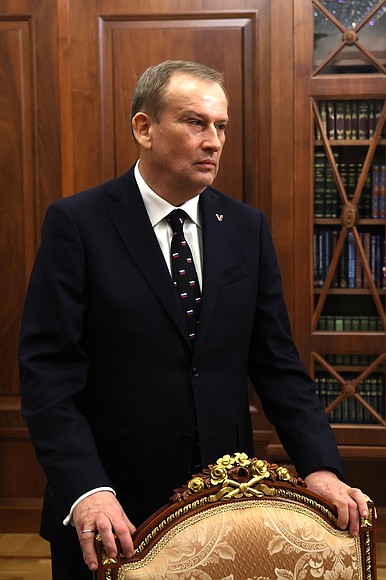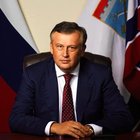Alexander Drozdenko began his report with support for participants in the special military operation and their families. He noted that people from the region were actively involved in the special military operation, in particular, serving in the named units such as the Leningradsky, Nevsky, and Ladozhsky battalions. The Leningrad Region has 84 regional measures to support SMO participants, their family members and especially children. A cluster for comprehensive rehabilitation and adaptation of participants in the special military operation, the first in the north-west, was created. It comprises a prosthetics and a rehabilitation centres. It also includes workshops and classes for retraining as well as an ice arena and a swimming pool. Veterans can study, get prosthetics, rehabilitate, and play sports using cutting-edge equipment. They are also assisted in finding employment. By agreement with employers, a subsidy of one million is paid from the budget to create a job, and 873 veterans have already been employed.
The Governor also spoke about the Leningradsky Frontier (Rubezh) Foundation, which works on large projects such as mobile water purification systems for the military and buses repurposed for evacuating the wounded. The foundation also has experience in creating underground hospitals in the frontline zone. In addition, grants are allocated for the “people’s military-industrial complex”: for example, the manufacture of devices for small arms or creation of a sewing workshop – starting out in a garage, they grow then into a fully-fledged workshop with the help of grants. A training centre has also been established for training in UAV control, detection, and suppression systems. New training areas and workshop buildings are under construction, because it turned out to be very popular.
The discussion also touched on the unification of volunteer clubs in the region. All 165 volunteer clubs now receive centralised assistance and support in the form of consumables, machine-tools, and equipment.
The Governor also reported on the progress in the Donbass territories under the region’s patronage, in particular, on the restoration of historical buildings in Mariupol and the Donetsk People’s Republic.
As for the economy, the share of investments in gross regional product reached 55.4 percent. In 2024 investments amounted to 1,110 billion rubles; with the total of 354 projects worth seven trillion rubles being supported. GRP has more than doubled since 2015, and the region has a very good industrial production index. Industry accounts for 36 percent of the economy. The agricultural sector is also developing: the region produces 41 percent of all food products in the North-West and hence has a leading position in Russia in terms of eggs, poultry, and fish production. Agricultural indicators have been growing for the seventh year in a row, though the region is located in a risky farming zone.
Alexander Drozdenko thanked the President for supporting infrastructure projects such as the Neva high-speed motorway and bridges over the Svir and Volkhov. The port of Ust-Luga, just like the Baltic Sea ports in the Leningrad Reion in general, is operating efficiently. The region is working together with Russian Railways to restore the Pskov-Gdov-Slantsy railway to Ust-Luga, which is very important for cargo redirection. This railway will also be in demand for Belarusian cargoes.
Among the promising investment projects, the Governor mentioned a large commercial dairy farm with the capacity of 8,000 heads, the largest today not only in the North-West, but also in Russia and even in Europe. It will be launched this coming summer.
The Governor also spoke about carrying out the President’s instructions on clean water and waste. In terms of clean water, the figure of 85.5 percent has been achieved, while the target figure was 84.5. The region will reach 100 percent waste treatment by January 1, 2027, while the target was 2030.
They also discussed social issues: demography, personal incomes, which have been steadily growing over the past decade, and the growing life expectancy, which has reached almost 76 years. The region has also become one of the leaders in terms of mortality reduction; it is building schools, kindergartens, other educational and sports facilities.
The Governor emphasised that there were no problem projects left in the Leningrad Region and that it was very important to implement the strategy of its comprehensive development. The potential is good, a team has been formed, so Alexander Drozdenko asked for the President's support to continue implementing all projects. In order to do so, he is ready to stand as a candidate in the upcoming gubernatorial elections.
Vladimir Putin said that the overall indicators in the region are good, although there are many problems, one of them being household incomes in general. The President also noted that Alexander Drozdenko was an experienced official, serving his third term in office, and that an important indicator – life expectancy – was growing faster in the region than the average nationwide. There are good results concerning investment projects in industry. This shows that the region's future looks good. The President added that when the federal centre's assistance is needed, it should be sought promptly in order to integrate the region's needs and tasks into the national development plan. The President wished Alexander Drozdenko good luck.




